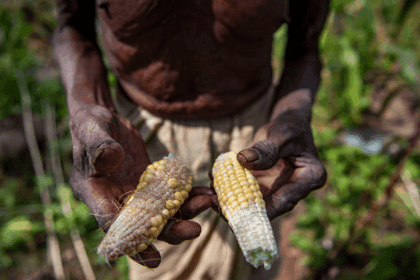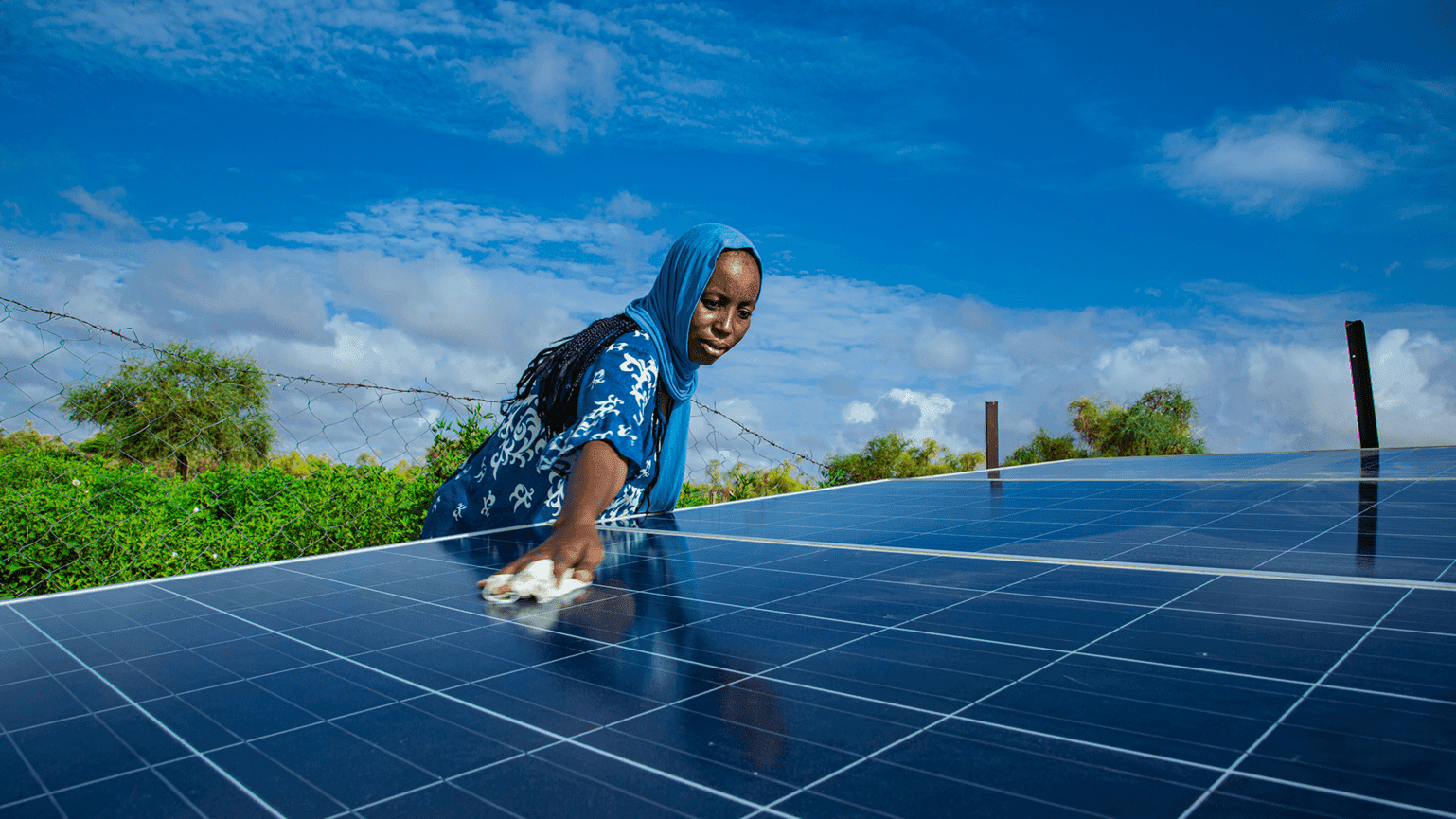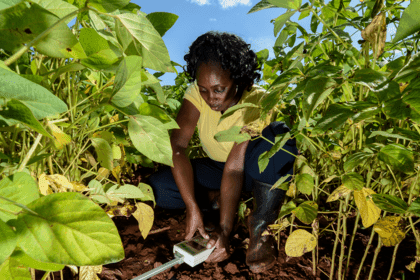
Science's role in protecting health from climate change isn't done
Health was everywhere at COP26, but often invisible. Now, the climate action that follows must be led by science that reaches those who need it, and confidently bridges the gap to policy.

Raphael Pouget / Climate Visuals Countdown
The UN Climate Change Conference (COP26) had a lot to live up to. As Wellcome joined for the first time, we were there to learn and create connections on how science can protect people from the health impacts of climate change.
There was encouragement in the strong presence and voice of the health community. But to create a bigger impact, we need to make a clear case that climate change is a health challenge that connects us all.
This is how we’ll be using the conference to inform action.
Putting health at the heart of climate action
If you looked in the right places, health was everywhere at COP26.
The first ever health pavilion, hosted by the World Health Organisation (WHO), created a focus for discussions on health. Health ministers and advocates were there, along with a powerful call to action from the healthcare community. There were also important pledges on making healthcare more sustainable.
But these conversations were happening in a climate and health bubble, floating around alongside a vast array of calls for climate action from a range of people and sectors.
The problem is that health runs so deeply through the wider discussions, that it’s often invisible.
The impact of climate change on health was clear in many of the stories I heard about people’s lives and livelihoods – but only if you were looking for it. We heard how young people in Uganda are experiencing increasing health challenges, such as waterborne illnesses after floods and their struggle to produce crops and animals they rely on to live.
We hosted a dinner to explore how civil society, governments, businesses and researchers can work together on science-based climate action for health. In just a few hours we heard so many ideas.
So imagine how much we could achieve if we popped the health and climate bubble, and bring health into broader conversations. The impetus and possibilities for action will grow hugely.
The health presence at COP26 means we have a strong platform to build from. As a health community, we must learn from the success of others – such as the nature community – in making the case for change and providing solutions to make health central to climate action.
Creating change with stories of hope and humanity
By making the health benefits of climate action clearer, we will complement and strengthen the existing case for change.
From many places, I heard the importance of telling stories of humanity and hope to inspire difficult action. And since health is fundamental to each of us wherever and however we live, it doesn’t get more human and relatable than this.
Wellcome supported BBC Media Action’s Living Climate Change series, which shows women in Kenya already facing miscarriages and stillbirths caused by extreme heat, and how changing sea levels in Bangladesh are making drinking water dangerously salty, causing heart disease and problems in pregnancy.
But stories like these were largely absent from debates at COP26.
Science can find solutions that will protect and improve health at the same time as preventing the harmful effects of climate change. Solutions like this are our hope – if we make sure they work for and reach the people who need them.
A role for science: bridging the gap to action
Wellcome supports science to solve urgent health challenges. So it was hard to hear that some people don’t see a role for science since it proved that climate change is happening.
For some, science has done its work. It’s time for action. And for many policymakers, the challenges they face are so profound that finding ways for science to solve them sits low down on a long list of priorities.
But I left COP26 believing more than ever in the role for science – if we approach it in the right way. For example, we can make a stronger case for action if we get better at showing how health is impacted by climate change. And science can create and test approaches to reduce these health impacts so that policymakers can apply practical solutions.
This isn’t the time for science as a pure academic pursuit. The problem is too severe, too urgent. We need science that sits comfortably at the intersection with action, not hidden in an ivory tower.
Supporting science to find solutions that really matter will take humility and courage. We need to meet people where they are and listen first to what matters to them. We need to be confident in taking science to the people who will use science-informed solutions, in words and ways that work for them, not the academic community.
This doesn’t mean compromising on quality or robustness of science. But we may need to find different ways to assess and support it.
With ambition we can – and must – bridge the gap between policy and science and create demand for better solutions. Solutions that people and the planet can’t afford to be without.

